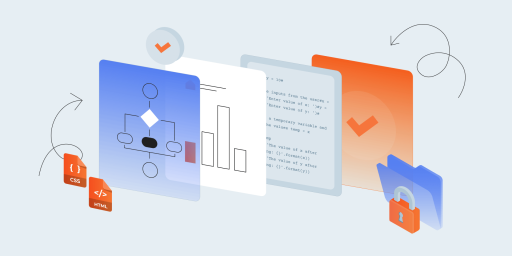Note: the article was updated in November 2020.
There are numerous testing techniques to choose from, but today we want to tell you about a basic yet very effective one called unit testing. Let’s have a look at the role of unit testing in software testing and how it makes sure your product works properly.
It is hard to overestimate the importance of software quality. A single error can have a huge negative impact on your project. If bugs are not addressed in a timely, efficient manner, they may turn into an endless cycle of fixes or even hurt your company’s reputation. Effective testing strategies help minimize such risks by ensuring the quality of the released product.
What Is Unit Testing?
Unit testing (sometimes called module testing or component testing) is a software testing method for checking the smallest testable components of your code (units) to ensure that they perform as intended. The basic feature of unit testing is isolation—a unit test only performs a specific function and excludes all external influences, such as dependencies between units, calls to other functions, etc. The unit testing process in software testing can be done manually, but developers usually use unit testing tools to facilitate the process so they can focus on more complex tasks such as defining the test cases.
What Are the Unit Testing Frameworks?
For almost all programming languages there is a suitable unit testing software that reads the source code and reviews it for errors. For example, there is JUnit for the Java programming language, CUnit for the C programming language, or JSUnit for the JavaScript programming language. In some languages, the test framework is already an integral part of its standard library. For example, Python’s library includes a module called unittest which is used to test the components of the code.
Why Is Unit Testing Important for Your Software Development Project?
Unit testing brings a lot of benefits to the development process. The method allows examining the components of the software separately to make sure that each performs as expected. With the help of unit testing techniques, you can localize every little error quickly and accurately as well as simplify the debugging process if any issue occurs. Moreover, unit tests give the ability to detect errors at an early stage of the development process, before they even reach the QA phase or end-users. It should be also noted that unit testing methodologies help save time and costs in terms of future development.
Need Manual or Automated Testing Services?
The main idea of writing unit tests lies in improving the quality of the software. In particular, unit testing ensures that the not exposed or hardly accessible functionality of the product works as designed. One of the biggest benefits of unit testing is that it also serves as credible proof of the quality of the technology your product is built using. By using unit testing best practices, you can also check the stability of the software, for example, how it reacts to malicious use.
“One of the biggest benefits of unit testing is that it also serves as credible proof of the quality of the technology your product is built using.”
Unit tests serve as the alignment between specification and the result of development. By running unit tests, it is easy to check if the program component delivers what was specified in the requirements. And finally, if you make changes to software, unit tests may be a cheap way to make sure that the system still works fine and none of the functionalities are broken.
What Is the Difference Between Unit Testing and Test-driven Development?
Unit testing is a technique that allows testing the smallest parts of the code individually and independently. Unit tests can be written before or after the code is implemented. Unlike unit testing methodologies, test-driven development is not a testing technique but a software development practice that uses tests to define the functions of the code to be written.
The development process within TDD takes place according to previously defined requirements. While applying the TDD practice, a prerequisite is selected from the list of requirements and a test is created and run to check what could go wrong (it’s called the red phase). If nothing goes wrong, it can either be because the test was not properly written or because the function is already well implemented. In the next phase (the green phase) you write the code to make the test pass. And the last phase of the TDD cycle is aimed at refactoring both the code and the test in order to make the code more efficient. So the main objective of test-driven development is to improve the code during the development process and thus to create a bug-free code that works.
“Unlike unit testing methodologies, test-driven development is not a testing technique but a software development practice that uses tests to define the functions of the code to be written”.
The tests generated during the test-driven development can be unit tests, functional tests, and acceptance tests. Yet when we speak about the tests used in TDD, we usually mean unit tests. The difference is that in TDD they are always created before the code is written. It is worth mentioning that the application of unit tests is not equated with the test-driven development as unit tests can be implemented later.
Conclusion
The importance of unit testing should never be underestimated. It is a powerful tool that brings a lot of benefits to software development. With unit testing, you have a chance to catch and fix a lot of bugs early in the development process, thus significantly improving the quality of your software solution. Unit tests have proven themselves to be a great method within the quality assurance and TDD processes that help you both rid your code of flaws and save money doing it.




